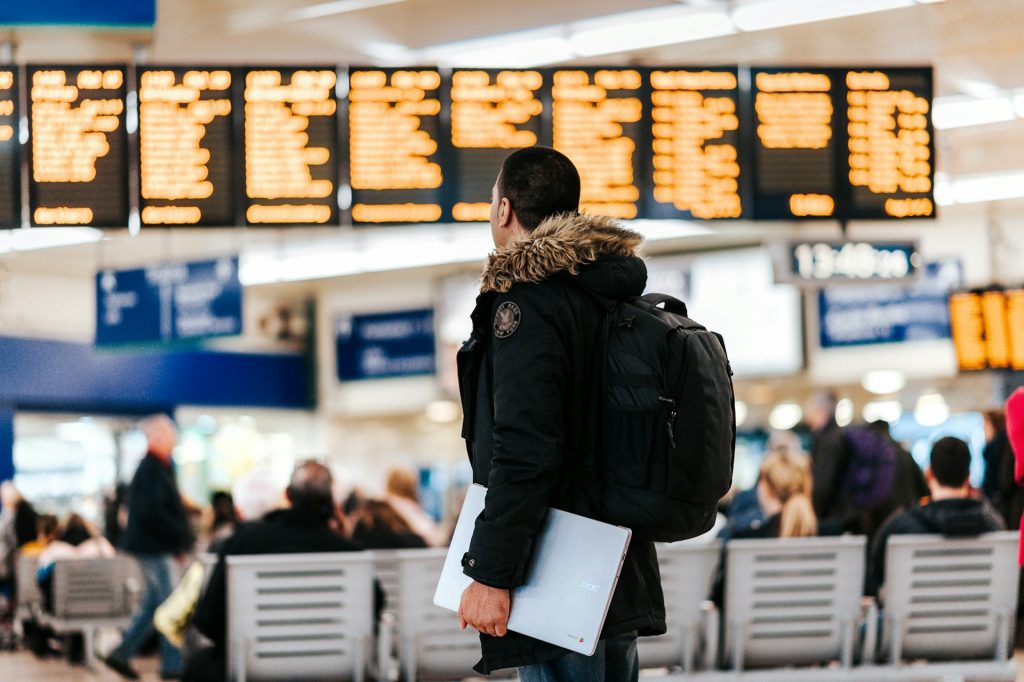Table of Contents
The vibrant chaos of Marrakech’s medina swirled around me as I locked eyes with the weathered carpet seller. His gaze was steady, unwavering. In that moment, I realized this wasn’t just about buying a rug – it was a masterclass in negotiation, one that would shape my approach to deal-making for years to come.
Little did I know, my adventures in haggling across the globe would transform me from a timid tourist into a confident negotiator, armed with skills that would prove invaluable in both my personal and professional life.
The Global Bargaining Boot Camp
Travel has a way of throwing you into the deep end, forcing you to adapt and grow in ways you never expected. Nowhere is this more evident than in the art of negotiation and bargaining.
In many parts of the world, haggling isn’t just accepted – it’s expected. And trust me, there’s no better crash course in negotiation than trying to buy a souvenir in a bustling Bangkok market or hail a taxi in Cairo.
My first attempts at bargaining were, admittedly, disastrous. In Istanbul’s Grand Bazaar, I walked away from a carpet shop owner feeling simultaneously ripped off and guilty for even trying to negotiate.
But with each interaction, each market, each country, I began to refine my approach. I learned to read body language, to understand cultural nuances, and most importantly, to remain calm under pressure.
The Power of Patience
One of the most valuable lessons I’ve learned through travel bargaining is the importance of patience. In Bali, I once spent an entire afternoon negotiating for a hand-carved wooden mask.
The shop owner and I chatted, drank tea, and slowly circled around the price. What initially felt like a waste of time turned out to be a crucial part of the process – building rapport and showing respect.
This lesson has served me well beyond the realm of souvenir shopping. In business negotiations back home, I’ve found that taking the time to build relationships and understand the other party’s perspective often leads to better outcomes than rushing to close a deal.
The art of the “slow play” I perfected in Asian night markets has become a key strategy in my professional toolkit.
Reading Between the Lines
Travel forces you to become adept at non-verbal communication, especially when bargaining across language barriers.
In Morocco’s souks, I learned to watch for the subtle shift in a seller’s posture that indicated they were reaching their bottom line. In Vietnam, I discovered how a shopkeeper’s tone could reveal more about their willingness to negotiate than their actual words.
These skills have proven invaluable in my professional life. Whether I’m in a boardroom or on a Zoom call, I find myself constantly reading the room, picking up on the unspoken cues that often hold the key to successful negotiations.
That ability to “read between the lines” is a superpower in any negotiation, and it’s one I honed through countless interactions in markets around the world.
The Art of Walking Away
Perhaps the most counterintuitive lesson I’ve learned from travel bargaining is the power of walking away. In Chiang Mai, Thailand, I fell in love with an intricate silver bracelet.
The initial price was way out of my budget, and despite my best efforts, the seller wouldn’t budge. Reluctantly, I thanked her and turned to leave. Before I’d taken three steps, she called me back with a dramatically lower offer.
This tactic, I’ve found, translates surprisingly well to high-stakes business negotiations. The willingness to walk away from a deal that doesn’t meet your needs is often the strongest leverage you have.
It’s a delicate balance – you have to genuinely be prepared to leave, but also open to returning if the terms improve. Mastering this dance has helped me negotiate better salaries, close crucial business deals, and even haggle for a better price on my car.

Cultural Intelligence: The Secret Weapon
One of the most valuable skills I’ve developed through travel bargaining is cultural intelligence – the ability to adapt and operate effectively in diverse cultural contexts. In Japan, I learned that direct negotiation is often seen as rude, and subtle hints are preferred.
In Middle Eastern markets, I discovered that bargaining is often viewed as a fun social interaction rather than a purely transactional exchange.
This cultural fluency has become increasingly important in our globalized business world.
Whether I’m negotiating with international clients or navigating office politics in a multicultural workplace, the ability to understand and adapt to different cultural norms gives me a significant edge. It’s a skill that’s hard to develop in a classroom but comes naturally when you’re immersed in diverse cultures through travel.
The Emotional Rollercoaster of Negotiation
Travel bargaining isn’t just about logic and strategy – it’s an emotional journey. I’ve felt the thrill of scoring an amazing deal on a handmade leather bag in Florence, and the frustration of realizing I’d overpaid for a “jade” necklace in Beijing (spoiler alert: it wasn’t real jade).
These experiences taught me to manage my emotions during negotiations, a skill that’s proven crucial in high-pressure business situations.
In Marrakech, I once found myself in an intense negotiation for a beautiful Berber rug. The seller was a master at playing on my emotions, alternating between flattery and guilt-tripping.
By staying centered and not letting my emotions cloud my judgment, I was able to secure a fair price that both of us were happy with. This emotional intelligence has become one of my greatest assets in professional negotiations, allowing me to stay cool under pressure and make rational decisions even when the stakes are high.
The Value of Research and Preparation
While spontaneity is part of the fun of travel bargaining, I’ve learned that a little preparation goes a long way. Before visiting the famous Chatuchak Weekend Market in Bangkok, I spent time researching typical prices for the items I was interested in. This knowledge gave me confidence in my negotiations and helped me avoid being taken advantage of.
This habit of thorough preparation has become a cornerstone of my approach to professional negotiations. Whether I’m preparing for a salary discussion or a major business deal, I always make sure to arm myself with relevant data and market insights. The confidence that comes from being well-informed is a powerful tool in any negotiation.
Building Win-Win Scenarios
One of the most transformative lessons I’ve learned through travel bargaining is the importance of creating win-win scenarios. In a small village in Peru, I was negotiating for a beautiful hand-woven textile.
Instead of just trying to get the lowest price possible, I expressed genuine interest in the weaver’s craft. We ended up agreeing on a price that was fair to both of us, and she threw in a demonstration of her weaving techniques – an experience far more valuable than the money I might have saved by driving a harder bargain.
This approach of seeking mutual benefit has revolutionized my approach to professional negotiations. Instead of viewing negotiations as a zero-sum game, I look for ways to create value for all parties involved. This not only leads to better outcomes but also helps build long-term relationships and reputation – crucial assets in both business and life.

The Confidence Factor
Perhaps the most profound impact of my travel bargaining experiences has been on my overall confidence. Each successful negotiation, each cultural barrier overcome, each deal struck has built up my self-assurance. The shy traveler who once accepted the first price offered is now a confident negotiator who isn’t afraid to advocate for his worth.
Bringing It All Home
The skills I’ve honed through years of travel bargaining have become some of my most valuable professional assets. The cultural intelligence, emotional management, and strategic thinking required to navigate a Moroccan souk or an Indian spice market are the same skills that give me an edge in the boardroom.
Every negotiation, whether for a hand-carved statue or a multi-million dollar contract, is an opportunity to learn, grow, and refine these skills.

I’m Simon St John, an editor who thrives on finding the profound moments in travel. With a background in crafting engaging stories for all generations, I delve into both grand adventures and simple discoveries. Through Tripnosis.me, I aim to showcase how travel can be a powerful catalyst for personal growth and deeper connections. My goal is to present fresh narratives that inspire and redefine your travel experience.




